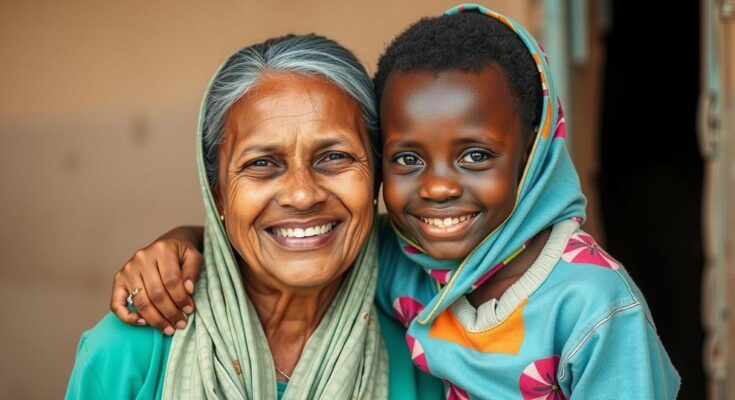South Sudan is experiencing a rise in individuals with disabilities due to conflicts in Sudan, leading to increased demand for rehabilitation services from its limited orthopedic centers. With support from the ICRC, the Physical Rehabilitation Reference Centre provides essential services to both locals and refugees. Notable individuals like Ladu Jackson are transforming their lives through sports, emphasizing the importance of social integration and empowerment for those living with disabilities.
South Sudan is currently facing a significant challenge with a growing number of individuals with disabilities, particularly as a result of the conflicts in neighboring Sudan. The ongoing crises have led many to seek essential rehabilitation services, including prosthetic limbs, from South Sudan, which possesses only three specialized orthopedic centers. This substantial increase in demand has placed considerable strain on the nation’s already fragile healthcare infrastructure.
One notable example is Ladu Jackson, who began his journey with disability at a young age after a road accident culminated in the amputation of his left leg. Initially devastated, Jackson transformed his life through sports, eventually becoming a prominent amputee footballer in South Sudan. “In 2021, I started learning how to play football with one limb. I didn’t know there was something called amputee football. I was just thinking, ‘I wish my leg was not amputated’ because I loved playing football so much,” he stated.
The Physical Rehabilitation Reference Centre in Juba, established in 2009, plays a crucial role in supporting both South Sudanese and refugees, utilizing the expertise of organizations such as the International Committee of the Red Cross (ICRC). Uwar Bosco, the head of the center, remarked, “Of course, there are already clients with these conditions, but their numbers keep getting bigger because of conflicts and more road accidents.”
Adam Ahamed Mohamed, a refugee who fled Sudan’s Darfur region, shared his plight of loss and recovery at the Center after receiving a prosthetic limb. He was shot in both legs; one leg was amputated before arriving at the rehabilitation facility. The center has observed a dramatic rise in clients, with James Ochan reporting, “So far, the data we’ve registered this year — from January to October — is 2,549.”
With South Sudan ratifying the U.N. Convention on the Rights of Persons with Disabilities earlier this year, the commitment to support individuals with disabilities is enshrined in law. Ochan highlighted that beyond physical rehabilitation, the center endeavors to assist individuals in social reintegration and fostering a sense of community belonging.
Additionally, the center encourages sporting events and entrepreneurial initiatives to empower those living with disabilities, aiming to restore normalcy in their lives. This transformative approach is essential as the nation develops a disability act to further secure the rights of its citizens with disabilities.
The ongoing conflicts in Sudan have resulted in an influx of refugees, many of whom suffer from disabilities, thereby straining South Sudan’s healthcare resources. With only a few specialized centers available for rehabilitation and prosthetic care, the increasing number of individuals requiring assistance highlights the urgent need for healthcare support. The Physical Rehabilitation Reference Centre in Juba is key to this effort, providing essential services and promoting social reintegration for those affected. South Sudan is also actively working towards improving the rights of individuals with disabilities, marked by its recent commitment to international disability rights conventions.
In summary, the influx of individuals with disabilities due to the Sudan conflict has placed significant pressure on South Sudan’s limited healthcare resources. The Physical Rehabilitation Reference Centre in Juba is pivotal in addressing this need, providing vital rehabilitation services and fostering societal reintegration. As South Sudan continues to enhance its support for individuals with disabilities, including through sports and economic initiatives, the hope remains that affected individuals can reclaim their lives and contribute positively to their communities.
Original Source: www.voanews.com




